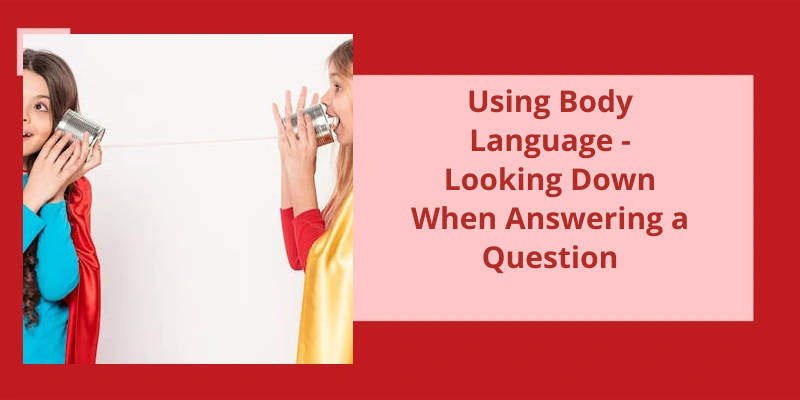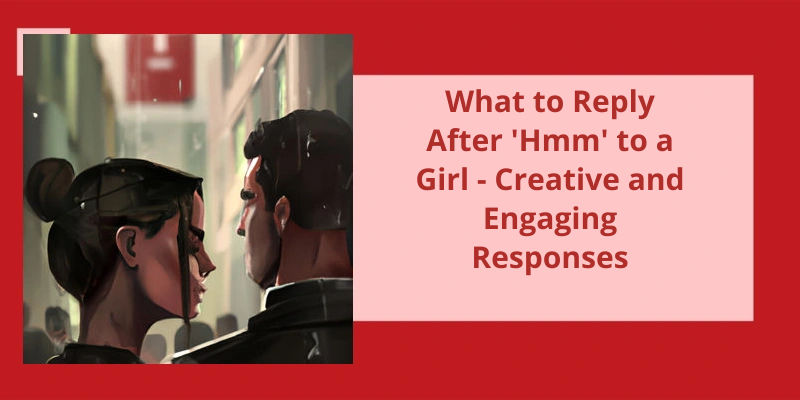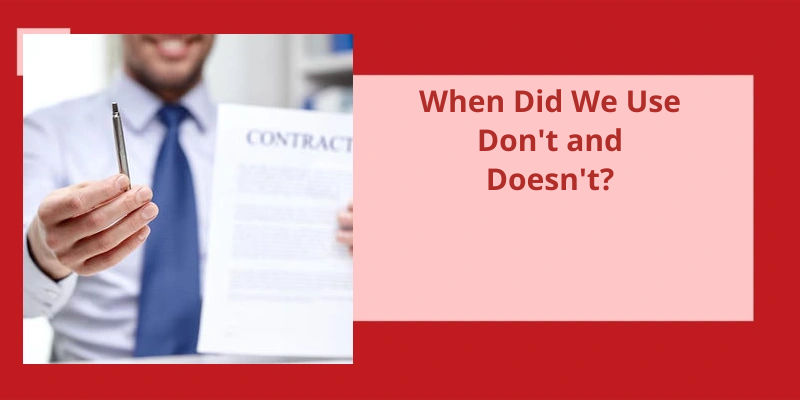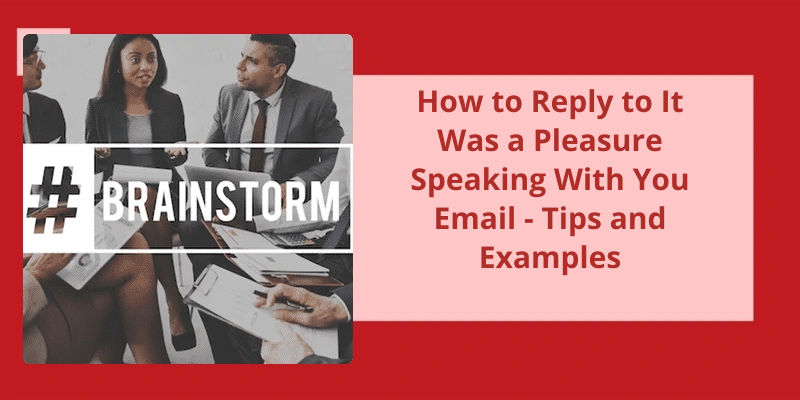As a professional, it’s common to be confronted with situations where you don't have the answer to a question. How you handle these situations can greatly affect how others perceive your level of expertise and professionalism. While it may be tempting to make up an answer or simply tell the person you don't know, there are better ways to address this type of situation that can demonstrate your professionalism and ultimately, build trust with your clients or colleagues. Effective communication, active listening, and a willingness to follow up are just a few ways to sound professional even when you don't have all of the answers.
How Do You Answer if We Don’t Know the Answer?
When an interviewer asks a question that you don’t know the answer to, it’s important to stay calm and composed. Keep in mind that the interviewer may be assessing your ability to handle stressful situations as opposed to your knowledge on a specific topic. Take a deep breath, gather your thoughts, and don’t be afraid to ask for clarification. This will give you time to think and understand the question better.
One effective strategy to answer questions you don’t know the answer to is to ask clarifying questions. This not only shows your interest in the topic but also gives you some time to frame your answers. For instance, if you’re asked a technical question that you don’t know the answer to, you can ask, “Can you please tell me more about the context of this question?” or “Can you give me an example or scenario where this is applicable?”
If there’s some information that you’ve regarding the topic, share that with the interviewer. Dont try to provide an entire answer when you only have a piece of the puzzle. You can say something like, “I’m not sure about this, but I do know that…” This response shows that you’re willing to contribute to the conversation and can steer it in a positive direction.
Be honest when you don’t know an answer. It’s okay to admit that you don’t have all the answers. This will show your humility and integrity. Instead of pretending to know an answer, you can say, “I’m sorry, but I don’t know the answer to that. However, I’ll find out more about it and come back with the information.”
Finally, express your desire to learn. No one knows everything, and there’s always room for growth and development. When you’re faced with a question you don’t know the answer to, take it as an opportunity to improve your knowledge and skills in that area. You can say something like, “I don’t have an answer right now, but I’d be really interested to learn more about it if you could provide me with some information.”
How to Prepare for an Interview to Reduce the Chances of Encountering Questions You Don’t Know the Answer To.
- Research the company and it’s products/services
- Review the job description and requirements
- Practice answering common interview questions
- Prepare examples of how your experiences match the job requirements
- Role-play with a friend or family member
- Dress appropriately and arrive early
- Bring copies of your resume and a list of references
- Prepare questions to ask the interviewer(s)
Being caught off-guard during a presentation isn’t uncommon, and finding yourself unsure of how to answer a question can be nerve-wracking. However, the key to handling this situation is to remain confident and in control. Rather than trying to make up an answer, it’s important to acknowledge that you don’t know. In this article, we’ll explore some strategies for effectively handling this situation and ensuring that your presentation stays on track.
What to Say When You Don T Know the Answer in a Presentation?
When faced with a question that you don’t know the answer to during a presentation, it’s important to remember that honesty is always the best policy. There’s no shame in admitting that you don’t have all the answers, especially if the question is particularly technical or complex. Your audience will respect you for acknowledging your limitations and will appreciate your sincerity.
Instead of trying to bluff your way through the question, take a moment to think about the best way to respond. You can begin by acknowledging the question and expressing gratitude for the opportunity to address it. This will show that you’re respectful of your audience and are genuinely engaged in the conversation.
If the question is particularly challenging, you may need to defer to an expert. You can explain that you don’t have the necessary expertise to provide a thorough answer, but that you can connect the questioner with someone who does. This will demonstrate your commitment to providing accurate and valuable information, even if it requires some additional legwork.
It can also be helpful to offer some context or background information to help frame the question. This can help your audience understand the complexities involved and will give them a better understanding of why you may not have all the answers right away. Framing the question in this way can also help to generate more discussion and engagement from your audience, which is always a good thing.
Finally, it’s important to stay calm and composed when faced with a challenging question. Dont let your nerves get the best of you and don’t feel like you need to provide an immediate answer. Take a deep breath, collect your thoughts, and respond with confidence and clarity. Remember, the most important thing is to be honest, sincere, and respectful of your audience at all times.
Strategies for Handling Difficult or Hostile Questions
- Listen carefully to the question being asked
- Be prepared with a clear and concise answer
- Acknowledge any valid points in the question
- Avoid becoming defensive or confrontational
- Redirect the focus of the question, if necessary
- Stay calm and professional
- Provide examples or evidence, if applicable
- Rephrase the question to clarify it, if necessary
- End with a positive note or solution
Source: How to Handle Questions During a Presentation | SecondNature
When it comes to expressing uncertainty or doubt in a professional setting, it’s important to choose your words carefully. Saying “I’m not sure” or “I don’t know” can come across as unconfident or unprepared. Instead, consider using phrases like “correct me if I’m wrong” or “as far as I know” to convey your uncertainty while still maintaining a professional demeanor.
How Do You Say Unsure Professionally?
When it comes to communicating in a professional and formal setting, it’s important to choose your words carefully. One common situation that can arise is when youre feeling unsure about something, but you still need to convey that uncertainty in a professional way. So, how do you say unsure professionally?
One approach is to use the phrase “to the best of my knowledge.”. This expression acknowledges that you may not be completely certain about something, but it implies that you’ve made an effort to research and understand the topic as thoroughly as possible. For example, if a colleague asks you about a recent policy change in your organization, you could respond by saying, “To the best of my knowledge, the policy went into effect last week.”
Another phrase that can convey uncertainty while still maintaining a professional tone is “I may be wrong, but..”. This phrase signals to your listener or reader that you’re aware that you could be mistaken, but youre still offering your perspective or opinion. This can be particularly useful when youre participating in a debate or discussion and want to make a point without sounding overly assertive or dogmatic.
If you want to express uncertainty without explicitly using the word “unsure,” you could use the phrase “correct me if Im wrong.”. This phrase conveys the idea that youre open to feedback and willing to consider alternative viewpoints or information. For instance, if youre presenting some data to a group of colleagues, you might say, “This is what Ive found, but correct me if Im wrong.”
Sometimes, it may be helpful to use a more formal approach when expressing uncertainty. In these cases, you might say something like “I defer to your expertise” or “Im not certain, but I believe..”. These phrases can help you convey respect for others knowledge and expertise while also expressing your own perspective.
Ultimately, the key to expressing uncertainty in a professional way is to acknowledge that you don’t have all the answers while still offering thoughtful and well-informed insights. By using phrases like “to the best of my knowledge” or “I may be wrong, but..” you can maintain a professional tone while still conveying your perspective. being open to feedback and willing to learn can help you build stronger relationships and communicate more effectively in your professional life.
How to Handle Situations When You Are Unsure in Front of Clients or Customers
- Take a moment to collect your thoughts.
- Listen actively to the client or customer.
- Ask clarifying questions to fully understand their needs.
- Be honest about your uncertainty and offer to follow up with more information.
- Consult with colleagues or supervisors for guidance.
- Apologize if necessary and offer a solution or alternative.
- Thank the client or customer for their patience and understanding.
- Reflect on the situation and identify areas for improvement.
When it comes to communicating in a formal setting, it’s essential to use appropriate language that reflects your professionalism. One of the ways you can do this is by using formal alternatives to the phrase “I don’t know.” Fortunately, there are several synonyms you can use to convey uncertainty without sacrificing your credibility. Here are some of the best options you can consider.
How Do You Say I Don’t Know in a Formal Way?
In formal language, expressing uncertainty or lack of knowledge can be challenging, especially in professional settings. It’s important to maintain an air of competence and authority, even when admitting that one isn’t entirely sure of something. Fortunately, there are several phrases and expressions that can convey a sense of professionalism and respect while still acknowledging ones lack of knowledge or certainty.
One alternative to saying “I don’t know” in a formal context is to state that you aren’t certain, but can find out more information for the questioner. This shows that you’re committed to providing a thorough and accurate response, even if you don’t have all the facts at hand. Similarly, saying “Im not entirely sure, but I believe..” allows you to offer a tentative answer while still acknowledging that you may be incorrect.
Another option is to direct the question to someone who may have more expertise or knowledge in a particular area. This shows both humility and a desire to ensure the questioner receives the most accurate information possible. Additionally, responding with “Thats a good question” can demonstrate that you’re engaged and interested in the conversation, even if you can’t immediately provide an answer.
Finally, for complex or nuanced questions, it’s perfectly acceptable to state that you’ll need to do some additional research before providing an accurate response. This shows that you’re committed to ensuring your answer is thorough and well-researched, rather than simply providing an off-the-cuff response that may be inaccurate.
Tips for Preparing Beforehand to Avoid Having to Say “I Don’t Know” in a Formal Setting
Here are some suggestions for preparing yourself in advance to avoid having to admit ignorance in a formal setting.
When faced with a question you don’t know the answer to, it can be tempting to simply say “I don’t know.” However, this can come across as unhelpful or unprofessional. Luckily, there are a few alternative phrases you can use to show that you’re still engaged and willing to help. Here are four options to try next time someone stumps you.
What Can I Say Instead of I Don’t Know the Answer?
“Im not sure, but let me think about it.”. This response shows that you arent dismissing the question and are willing to put in some effort to find an answer. “Im not familiar with that, but I can look it up.”. Admitting you arent sure is okay, but offering to research it shows initiative and can lead to a better understanding of the topic.
When faced with a question you don’t know the answer to, it’s best to remain calm and composed. Panicking or getting defensive can lead to additional stress and unnecessary embarrassment. Instead, take a breath and consider your response carefully.
One option is to simply say, “I don’t know.”. This can be a mature and honest response in many situations. However, in a professional setting, it may be more appropriate to offer an alternative response.
A good way to frame your response is by showing that you’re open to learning and growing. By saying something like “I don’t know the answer yet, but I”m happy to look into it further,” you demonstrate a willingness to work towards a solution.
Overall, the key is to be honest and transparent about your knowledge on a given topic. If you genuinely don’t know the answer, don’t try to bluff your way through it. Instead, offer a thoughtful response that addresses the question at hand while showing your dedication to improving your knowledge on the subject.
How to Gracefully Handle Follow-Up Questions After Admitting You Don’t Know the Answer
- Acknowledge that you don’t know the answer
- Thank the person for asking a good question
- Offer to find the answer
- Set a timeline for follow-up communication
- Make good on your promise to follow up
Conclusion
In conclusion, sounding professional when you don't know the answer is a skill that requires a combination of honesty, critical thinking, and effective communication. Being transparent about your limitations and seeking help from colleagues or experts can demonstrate integrity and a commitment to accuracy. Additionally, taking the time to analyze the question and provide relevant information or resources can show that you’re thoughtful and resourceful. Overall, being professional in a situation where you lack knowledge involves being humble, proactive, and dedicated to finding the best solution possible. With practice and a willingness to learn, anyone can develop the skills necessary to sound professional even in uncertain situations.






